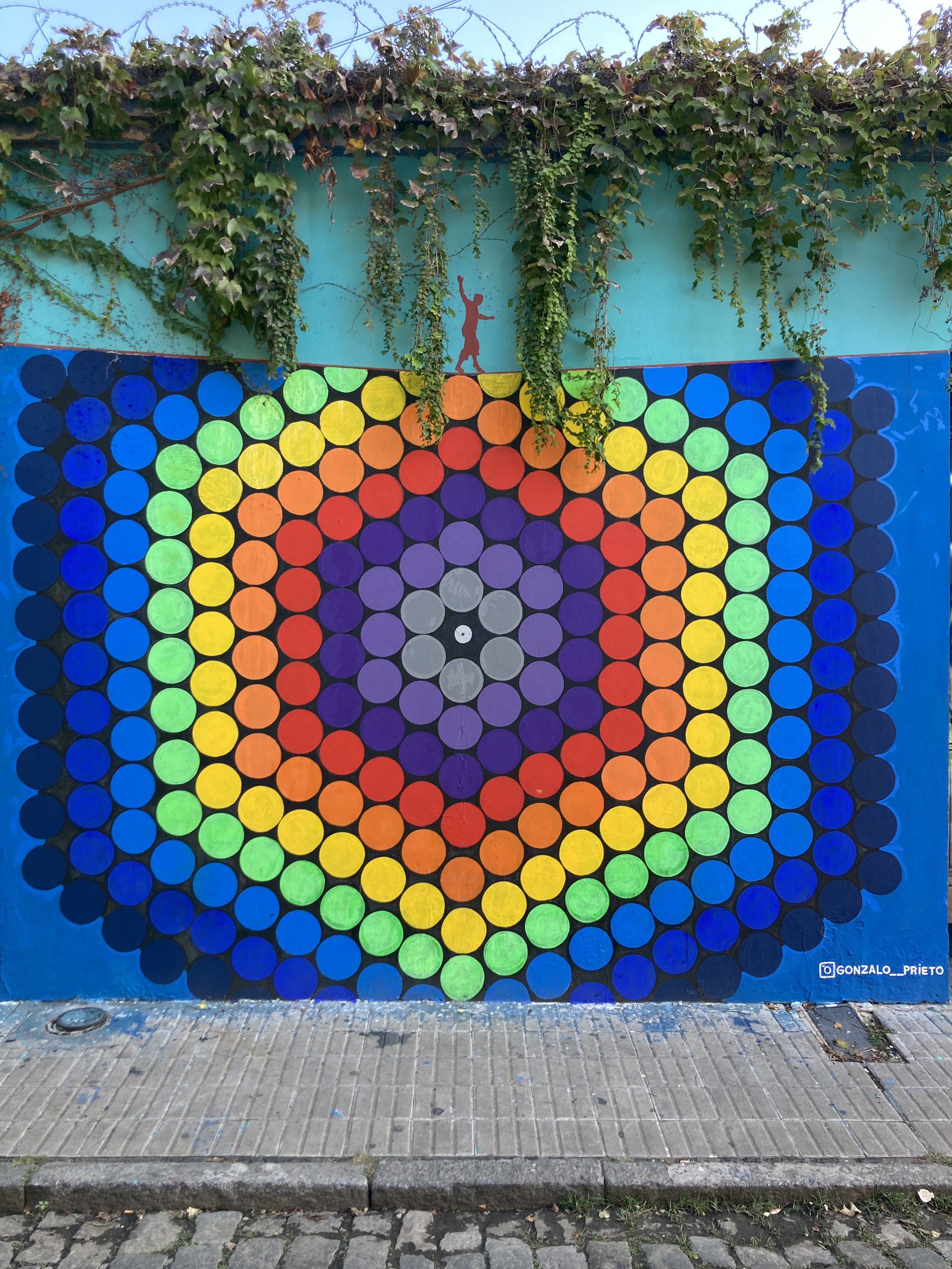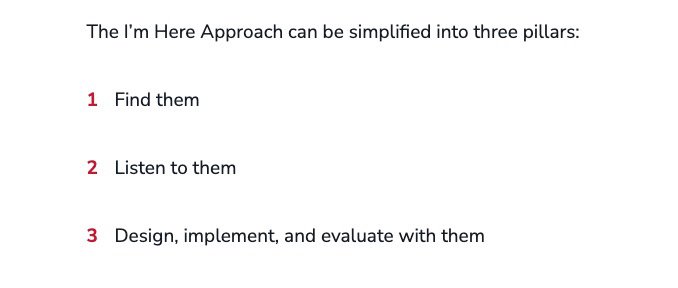
My work
Qualitative Research | Participatory Evaluations | Facilitation | Design and Innovation
Qualitative research to design gender-responsive disaster preparedness with multiple stakeholders
Background: UNICEF ESARO and IFRC launched a partnership to increase attention to gender and gender-based violence in disaster risk management across Eastern and Southern Africa. They commissioned a study to identify opportunities and recommendations for bolstering multi-stakeholder, gender-responsive disaster risk management nationally and regionally.
Role: Led the study, coducting the desk review, 72 consultations across UNICEF and IFRC Eastern and Southern Africa offices, and 61 key informant interviews with representatives from government, national and subnational organizations and international partners. Authored report, presented at global launch event on insights and recommended actions, and designed draft of concept note for subsequent multi-stakeholder programming.
Methods: Desk review and key informant interviews.
Insights and action: Insights were developed by country and across the region, identifying opportunities for more gender responsive approaches for disaster risk management policies, laws and coordination. The learnings were published in the report Gender-responsive Disaster Risk Management, and informed the design of Phase 2 of the UNICEF and IFRC partnership.
Qualitative research for multi-stakeholder services and programs
Qualitative research to increase safety and tailored health and protection services for diverse survivors of gender-based violence
Background: The Women’s Refugee Commission, working with a range of community-based and national organizations in India, Ecuador and Uganda, explored the risks to violence and opportunities to mitigate those risks and tailor services to increase the safety of diverse groups of historically marginalized refugees.
Role: Served as the research advisor to ensure quality and ethical standards and co-conducted 47 focus groups and 28 key informant interviews.
Methods: Focus groups, key informant interviews, survey.
Insights and action: The insights and action-oriented recommendations were shared with with all community-based and national organizations and published alongside tools in Mean Streets to equip humanitarian organizations to better serve a range of historically marginalized groups.
Evaluating whether women and girls’ participation in camp governance increases perceptions of safety
Background: IOM and the Women’s Refugee Commission piloted a five-country program to explore whether increasing participation and decision-making among women and girls in (refugee) camp settings increases their sense of safety.
Role: Research advisor for endline and research lead in the Philippines and Ecuador, overseeing research quality and ethics, co-developing methodology, co-training data collectors, co-analyzing findings and co-developing learning materials.
Methods: Stories of Change (adapted from Most Significant Change), focus group discussions, key informant interviews, household surveys.
Insights and Action: Learnings informed follow up IOM programs and more attention to strengthening the inclusion of marginalized groups within project, leading to the design and facilitation of inclusion trainings (see Facilitation) and the development of the Women in Displacement Toolkit.
Participatory Evaluations
Evaluating a legal aid for survivors of violence program using participatory methods in Uganda
Background: A humanitarian organization commissioned the Women’s Refugee Commission to evaluate its legal aid program for survivors of gender-based violence.
Role: Oversaw mixed methods evaluation, facilitated focus groups and participatory ranking and conducted key informant interviews, analyzed data and developed report.
Methods: Household survey, participatory ranking methodology, focus group discussions, key informant interviews.
Insights and Action: Confidential to organization.
An example of a young participant’s Story of Change that included photo voice. (My photo).
Participatory ranking and scoring exercise with community leaders (left) and a focus group with diverse women (right). (My photos).
Facilitation for inclusive program design
Facilitator of workshops for program staff to design inclusive programs with a focus on hidden groups of adolescents and people with diverse disabilities.
WORKSHOPS:
I’m Here Approach: Tools and strategies to include hidden, diverse adolescents by the Women’s Refugee Commission.
Lebanon: Co-facilitated a workshop over three weeks with UNICEF’s implementing partners for gender-based violence to equip program staff to find, reach and foster the participation of diverse and hidden adolescents (ex married and/or out-of-school girls, working boys and/or adolescents with disabilities)
South Sudan: Facilitated workshops with IOM staff and partner organizations to equip program staff to find, reach and foster the participation of diverse and hidden adolescents (ex married and/or out-of-school girls, working boys and/or adolescents with disabilities) in programs.
Methods: participatory design, focus group discussions, community safety mapping, asset exercise, household surveys, collaborative analysis, action planning, monitoring and evaluation
Girl Roster: Tools and strategies to enable girl-centered programming inclusive of hidden, diverse adolescent girls by Population Council.
Côte d’Ivoire and Haiti: Co-facililated four day workshops to equip USAID’s implementing partners for HIV to better center girls in their programming with attention to more hidden populations of adolescent girls.
Methods: participatory design, focus group discussions, community safety mapping, asset exercise, household surveys, collaborative analysis, action planning, monitoring and evaluation
Inclusion in Women in Displacement programs: Tools and strategies to better include and increase the participation of women and girls with diverse abilities/disabilities and other historically marginalized identities in governance and livelihoods programming.
South Sudan: Co-facilitated three day workshop on inclusion of diverse women, adolescents and persons with disabilities in programming as part of the Women in Displacement project.
Methods: gender, power and inclusion analysis, tailored strategies for engaging people with different types of disabilities.
Collaborative activities with workshop participants working through brainstorming sessions. (Left: Côte d’Ivoire; Right: South Sudan). (My photos).
Community safety mapping by participants (Left: Haiti; Right: South Sudan) (My photos).
Women in Displacement cycle
Design and Innovation for DEI and decolonization
Initiative for Anti-Oppression in Humanitarian Action
Co-creator of the Initiative for Anti-Oppression in Humanitarian Action (IAOHA). The initiative designed a workshop curriculum to confront and dismantle colonial power structures within humanitarian organizations and action. The workshop was piloted in Dakar, Cairo and New York. IAOHA was selected for New School’s Social Movements + Innovation Lab and subsequently developed the Dismantling White Supremacy in Humanitarian Aid/Development Working Document
Re-imagining INGOs and Global Civil Society (RINGO) Project’s Decolonizing Prototypes
Decolonizing Advisory Community
Member of small team designing a decolonizing advisory service to be housed at WACSI for Global North INGOs to access guidance from Global South advisors for their organizational decolonizing process. Reach out if you’re interested in learning more!
Decolonizing MEAL
Member of small team establishing a community of practice for researchers and evaluators interested and advancing decolonial practices for monitoring, evaluation, research, learning and accountability. Reach out if you’re interested in learning more!











